Doctor of Science in Information Technology Graduates
Spring 2023
Meet the members of the charter class of MGA's Doctor of Science in Information Technology!
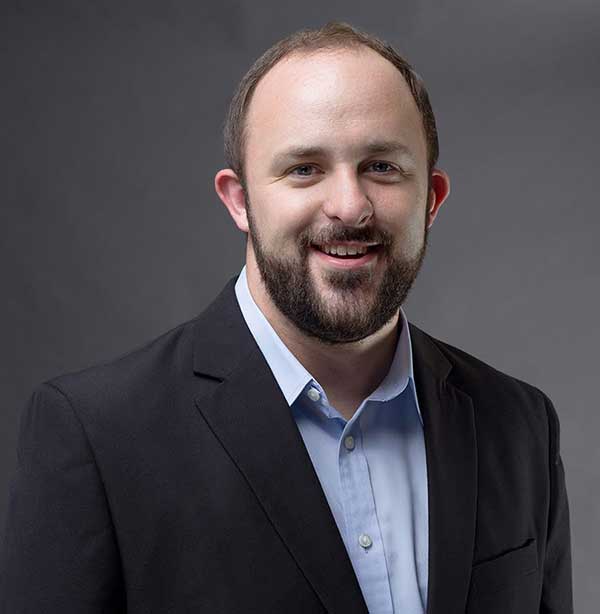
Chris Adams, 37, Dahlonega, Ga.
Chief technology officer (CTO) for University of North Georgia.
Doctoral research paper: Examining distinctions between corporate and higher education cybersecurity program development: a narrative review
"I wanted to pursue a terminal degree in information technology to demonstrate my commitment to the field and to strengthen my academic credentials. Modern IT leaders must be lifelong learners, well-rounded, and possess technical and leadership skills. Participating in this program has allowed me to develop and mature in each of these areas."
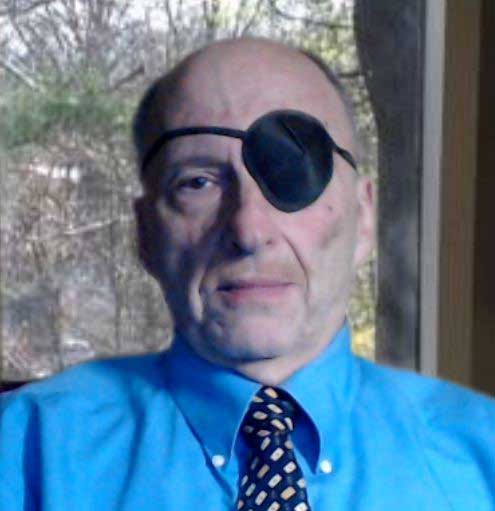
James Adcock, 72, Memphis, Tenn., & Atlanta, Ga.
Associate professor and judicial expert witness.
Doctoral research paper: Quality, value, and acceptance of online degrees as perceived by degree-holders and employers: A review of the literature
"I earned my master's in IT at MGA and have waited these past several years for this program to begin.IT and computer science have been my passion since 1984. I can think of no better discipline in which to end my professional life."

Ndidi Akuta, Griffin, Ga.
Chief information officer (CIO) for Fort Valley State University.
Doctoral research paper: Impact of COVID-19 pandemic on the information technology (IT) workforce: A review of the literature
"I have a passion for continuing education as well as passing knowledge to future generations." His professional goals include helping bring transformational change at Fort Valley State.
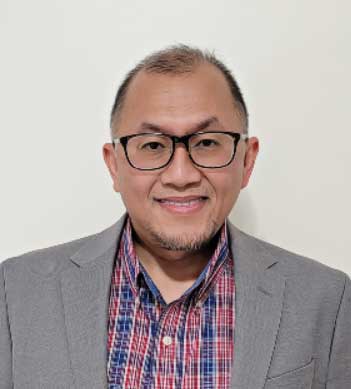
Jimmy Ardiansyah, Nashville, Tenn.
Senior manager/consulting director, IBM.
Doctoral research paper: A systematic literature review of the cloud adoption framework
"I have been teaching computing and technology courses at the University of Virginia at Charlotteville for the past two years, so I plan to take the immense industry experience, research methods, and data analysis skills learned during the DSIT program to benefit students at all levels."
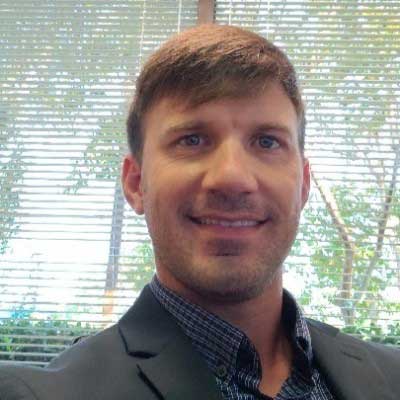
Cole Arnold, 35, Athens, Ala.
Cybersecurity/program protection engineering, KORD Technologies, LLC.
Doctoral research paper: Internet of Things (IoT) devices and security: A narrative review
"I am grateful that I am part of the first graduating class. I am also fortunate to have worked through the program with some first class members of society. This program not only provided me with the tools to be successful in my career, but it also allowed me to work with some of the greatest men and women I have ever known."
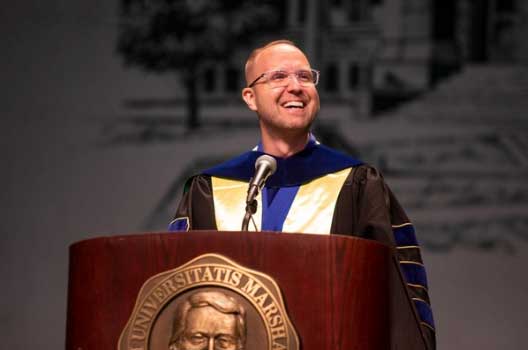
Joshua Brunty, 40, Salt Rock, W.V.
Cyber forensics and security faculty member, Marshall University.
Doctoral research paper: Student perceptions of experiential-based learning exercises in cybersecurity education
"For many years I searched for a doctorate program that aligned with both my career and academic goals. Most were either not online, took too many years to complete, or had coursework that I was not interested in. I found out about MGA's DSCIT program due to their status as an NSA Center of Academic Excellence (NSA-CAE) in Cybersecurity, and while browsing their site ran across the newly planned DSCIT program. For me this program checked all of the boxes I was searching for (and then some)."
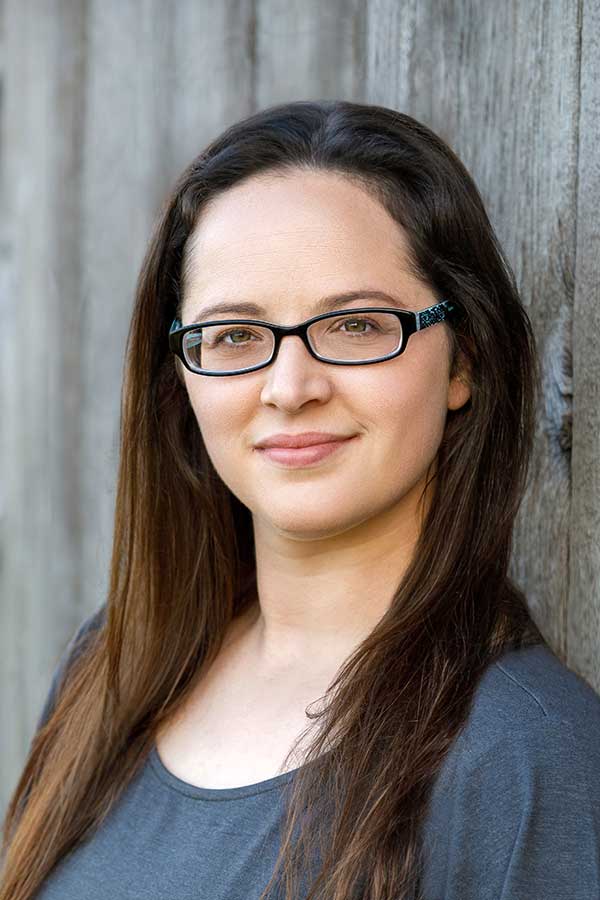
Jessica Butel, 36, Cornish, N.H.
Product security professional for infrastructure solutions and applications for Lenovo.
Doctoral research paper: Impact of Security Framework Compliance on Operational Security: Examining the Red Tape
"I plan to continue to further build my career within Lenovo with the hint of promising opportunities on the horizon. I also will have more time to dedicate to my passion projects such as ColaSec.org, a user group based in Columbia, S.C., focused on providing educational IT presentations and creating opportunities to make connections for those looking to break into the IT and security industries."
Jude Clemente, British Columbia, Canada.
Educator.
Doctoral research paper: Utilizing Machine Learning Techniques in Predicting Job Viability of Information Technology Program Graduates
"I found MGA's program online while searching for institutions offering a doctorate in IT. I was initially attracted to the program because it was a professional doctorate designed for practitioners. I like the program because it has an excellent blend of research and technology management courses."
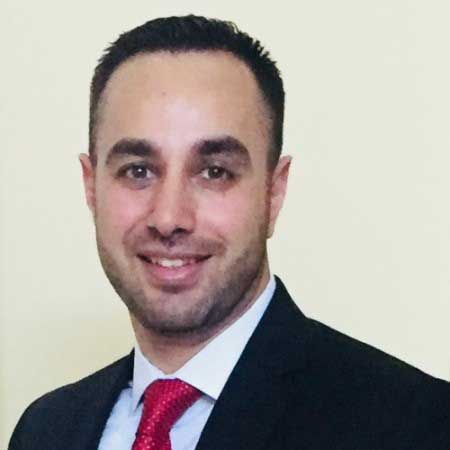
Mustafa Abo El-Rob, 39, Denver, Colo.
Information technology and management consulting senior manager at Accenture.
Doctoral research paper: A narrative review of advantageous cybersecurity frameworks and regulations in the United States healthcare system
"Before committing to MGA's program, I searched numerous top-notch information technology programs because I was planning to continue working while attending graduate school. I believed that the program at MGA would allow me to utilize my diverse technical, business, and work experiences, and that claim stands true as we near graduation. I am ready to mold my diverse set of skills and experiences to build a long-lasting future technological career as a senior executive consultant, scholar-practitioner, and academic researcher.
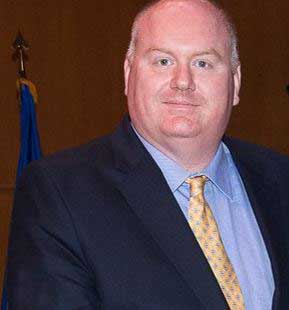
Kieran Fletcher, 44, Elizabeth City, N.C.
Information systems manager, U.S. Army, former Foreign Service information management specialist, maintaining data and communications systems at U.S. embassies and consulates around the world.
Doctoral research paper: The role of management decisions in creating cyber-security vulnerabilities
"Completing my master's degree reignited my interest in education. I decided to pursue a doctoral degree to facilitate a potential transition to an academic career when I retire from the federal government. I was born and raised just down the road from MGA in Fitzgerald, Georgia. When I found a new program close to home I wanted to be part of it. Also, most of the classes were online so MGA offered the geographic flexibility I needed."
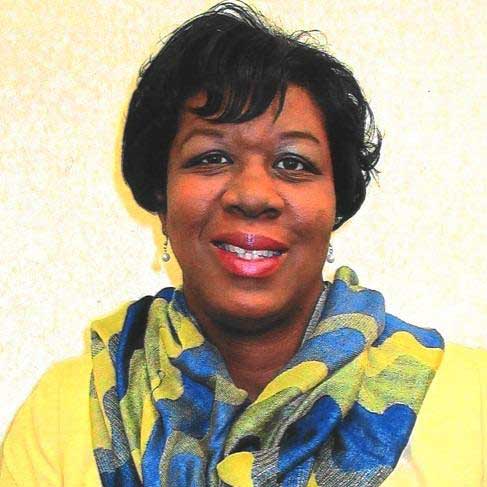
Amanda Glover, 53, Macon, Ga.
Primary LMS administrator and instructional designer, Fort Valley State University.
Doctoral research paper: IT leadership on classroom technology integration within higher education: A narrative review
"I am so grateful to the faculty and staff in this program who have provided me a wealth of knowledge and skills to feel the confidence to start my next journey, which I hope is a leadership position. More importantly, I am thankful to my peers within my cohort, with whom I have formed friendships and important collaborations on a professional level."
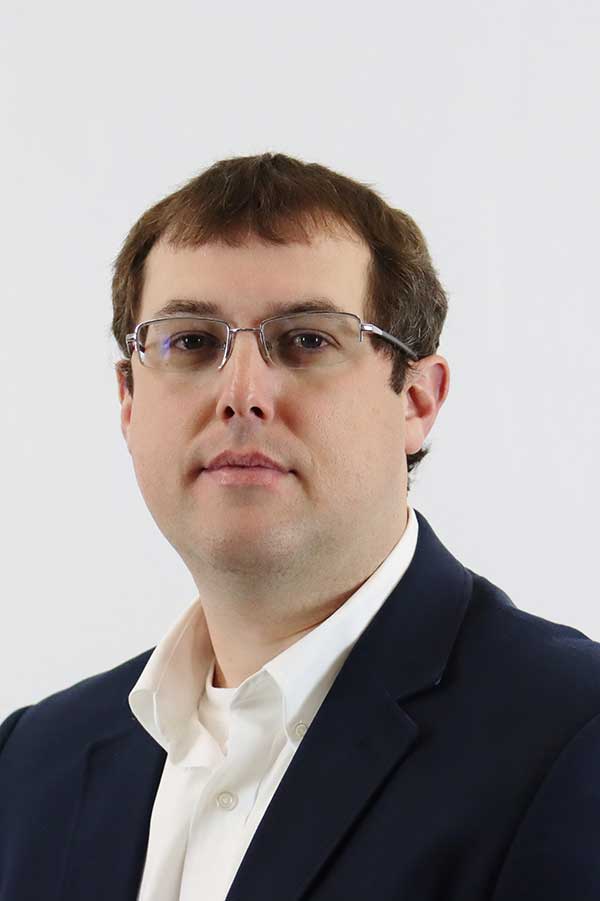
Jimmy Harper, 40, Alapaha, Ga.
Vice president of enrollment management and information technology, South Georgia State College.
Doctoral research paper: Cybersecurity: A review of human-based behavior and best practices to mitigate risk
"I always wanted a terminal degree in information technology, so when Middle Georgia State University announced it would offer a Doctor of Science in Information Technology, I was excited about the opportunity. It is a true honor to be a part of the inaugural class. The time has passed by quickly, but I hope as the first class, we have set a good example for future classes. I also want to say 'Thank You' to the faculty and staff that have helped us grow in this program."
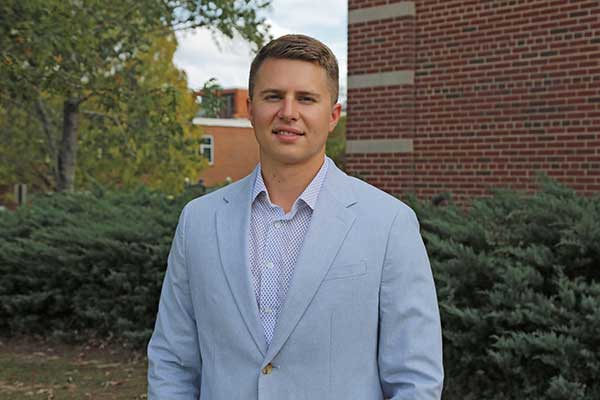
Jonathan Hobbs, 33, Americus, Ga.
Manager of IT and faculty support and computer science adjunct instructor, Georgia Southwestern State University.
Doctoral research paper: Cybersecurity Awareness in Higher Education: A Comparative Analysis of Faculty and Staff
"I feel honored and humbled to be part of this first cohort. There are so many brilliant people in this program that I have been able to learn so much from over the past two years. Their experiences have helped me broaden my knowledge in and out of the field, and I have made many lifelong friendships which I can seek guidance from. Also, I'm stoked!"
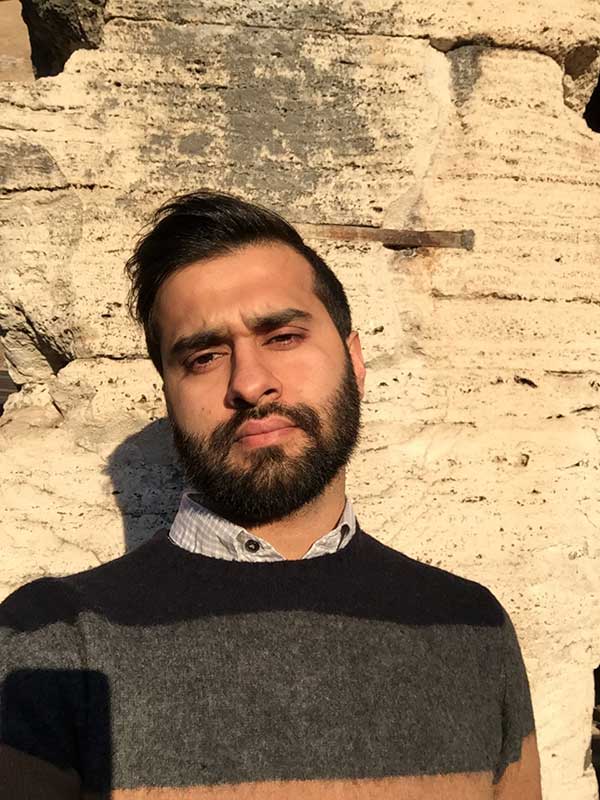
Ans Irfan, Los Angeles, Calif.
Associate professor at Keck School of Medicine, University of Southern California, and religion and public health fellow at Harvard University.
Doctoral research paper: Climate innovation and technology: Community perspectives on advancing social equity
"Pursuing the DSIT was an exceptionally wonderful ride, thanks to some of the most brilliant and compassionate folks in my cohort. I was the only person without an IT-specific career but my cohort and faculty supported me throughout the process, from the initial conversation to now wrapping up the Doctoral research paper, which made it a joyful experience."
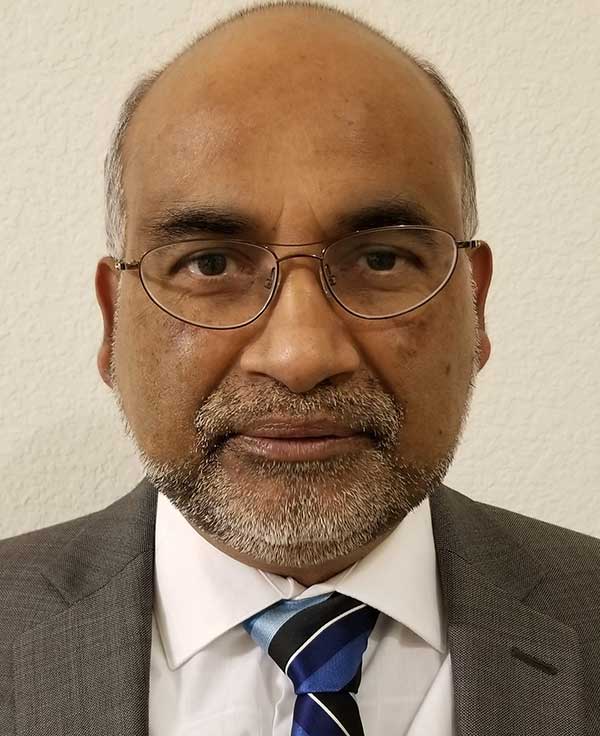
Anwar Islam, Dallas, Texas.
Cybersecurity program manager in a government agency leading security governance, risk management, compliance, vulnerability assessment, and incident management. Previously, I led data science/analytics, business intelligence, artificial intelligence, and machine learning projects for building intelligent systems to tackle complex challenges in the enterprise
Doctoral research paper: Application of artificial intelligence and machine learning in security operations center
"I am proud to be a member of the first graduating class of the DSIT program. I feel I accomplished a lot academically, though sometimes I had difficulties fulfilling my family, professional, and academic obligations. The journey was not easy. But I am grateful to my family, faculty members, classmates, and coworkers for all their support in this endeavor."
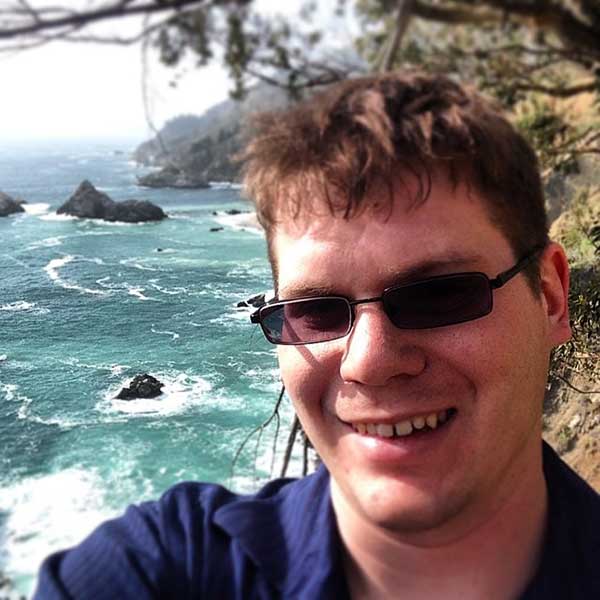
Brian Kendrick, 38, Atlanta metro area.
Supports implementations for cloud and hosted Closed Circuit Campus Card Transact Systems in providing a mobile-first digital experience at Transact Campus.
Doctoral research paper: Implementing value: Evaluating systems frameworks and their impact on scalable systems implementations
"I discovered the DSIT program at MGA while researching other programs that matched my interests in technology and leadership. The program's emphasis on business professionals … appealed to my desire to conduct research in the field. Professionally, I want to advance to a more senior position in order to provide leadership and direction to an organization whose mission and efforts make a difference in how we interact with technology to better the world."
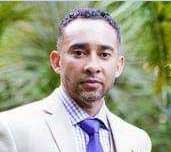
Franklin King, 51, Cary, N.C.
Solutions architect – CcaaS.
Doctoral research paper: Technology stakeholders' perceptions on the application of gamification in the contact center: A thematic review of the literature
"The desire to obtain a terminal degree has been a personal goal of mine for years. MGA's program seems to provide a 'work-life-study' balance that working adults desire, whereas other programs I evaluated lacked. My experience in IT fueled my career, but I wanted my talent and passion in IT to blossom. MGA provided that opportunity for growth, confirming that I made the right decision."
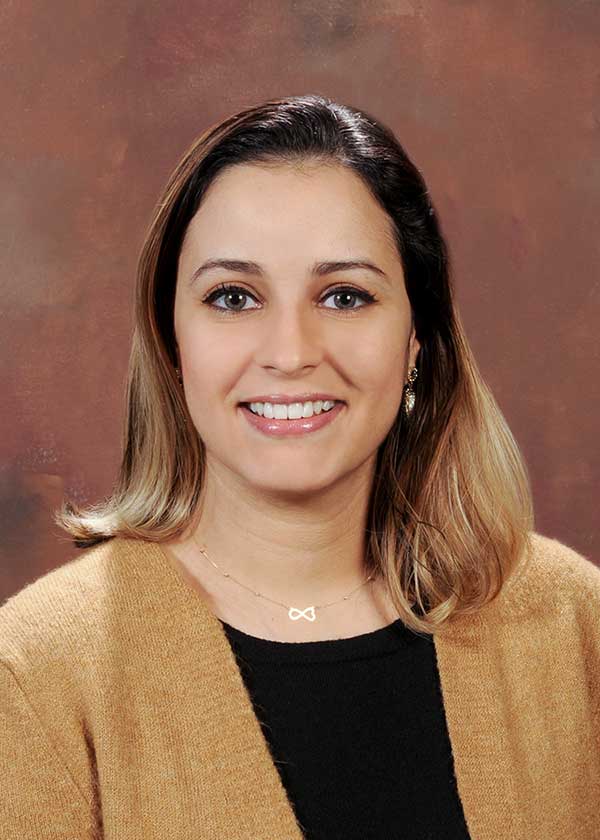
Zaineb Naamane, 32, Washington, D.C.
Data engineer responsible for designing, developing, testing, and maintaining data pipelines and data architectures.
Doctoral research paper: A systematic literature review: benefits and challenges of cloud-based big data analytics
"I plan not only to contribute directly to the research in the field of information technology, such as big data analytics, cloud computing, and data engineering, but also introduce these technologies to the market. The Doctor of Science program at MGA has supplemented my research and provided me with the knowledge and experience required to contribute effectively to this effort."
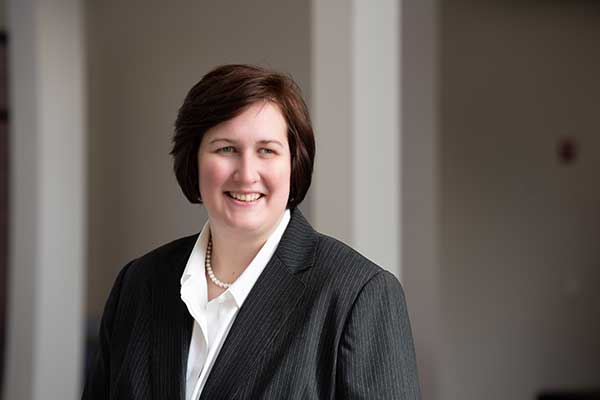
Christa Self, 32, Warner Robins, Ga.
IT specialist, Robins Air Force Base.
Doctoral research paper: The many applications of sentiment analysis: A literature review
"I have a family member who received her doctorate in psychology, and we all looked up to her as she was the first in the family to attain that level of education. After that, I knew I wanted to attain my doctorate, but didn't quite know which subject. I have always loved computers and technology, and after finishing my bachelor's and master's in IT at MGA, it just made sense to apply when the DSIT program was released."

Raven Small, 32, Butler, Ga.
Senior security administrator at Research Management Consultants Inc. as a federal contractor for the U.S. Office of Personnel Management.
Doctoral research paper: Telecommuting and performance: Impact on performance from working remotely
"My professional goals are to learn as much as I can about information technology to strengthen my awareness of trends within the field and how I can contribute to the overall mission and purpose of the profession. I also plan to pursue a career in academia in the future and I feel the DSIT will give me the ability to compete in the competitive academic job market."
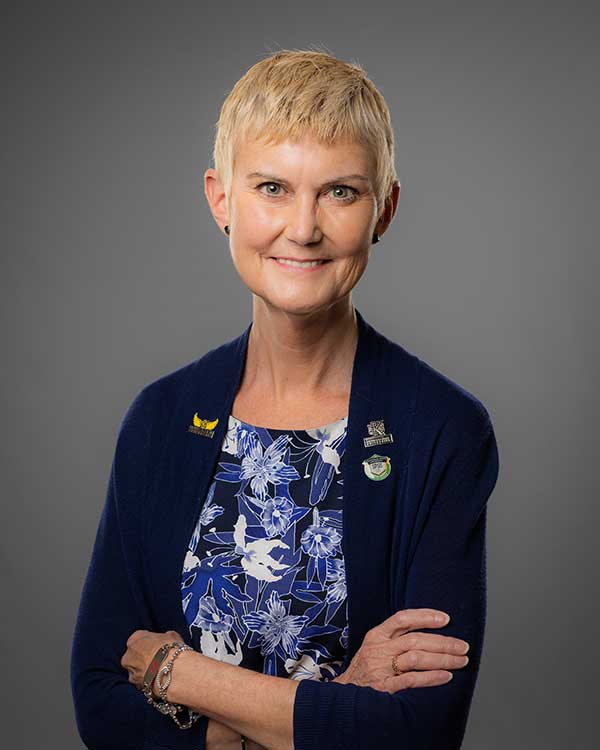
Dawn Tatum, 60, Acworth, Ga.
Director of Partnerships & Engagements and senior lecturer of IT, College of Computing and Software Engineering, Kennesaw State University.
Doctoral research paper: Gamification of security awareness training programs: a literature review
"I heard about the DSIT through (the University System of Georgia) and I chose it because of the ability to pursue it while continuing to work full time. There are very few state programs that offer the flexibility that allows a doctoral student to work full time, especially in the technology field. I researched the University and the faculty and was very impressed with the program. The fact that the program requires students to have industry experience was also a different approach, which I found appealing."
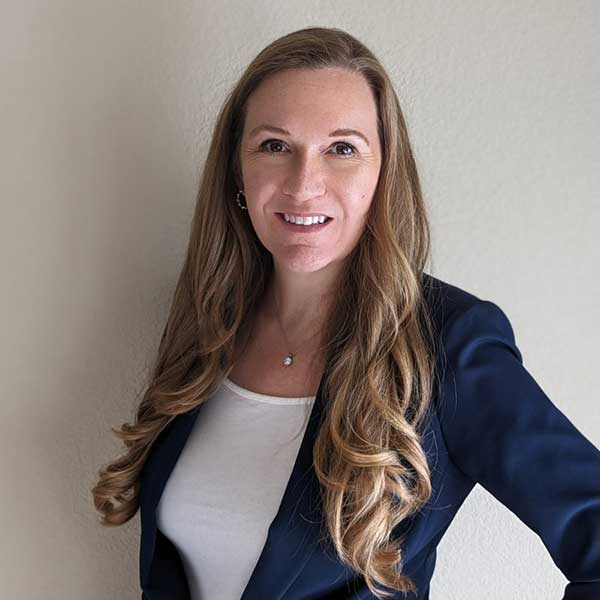
Lindy Thorn, 45, Reno, Nev.
Director of the Office of Information Technology Management at a large government contractor.
Doctoral research paper: Project managers’ experience and its impact on a project’s successful completion: A review of the literature
"I've always contemplated an end-state degree but was scared of the commitment until I saw this perfect program at MGA. This was largely something I did for me, and I'm proud of the achievement, but I do also hope this supports my continued career development."
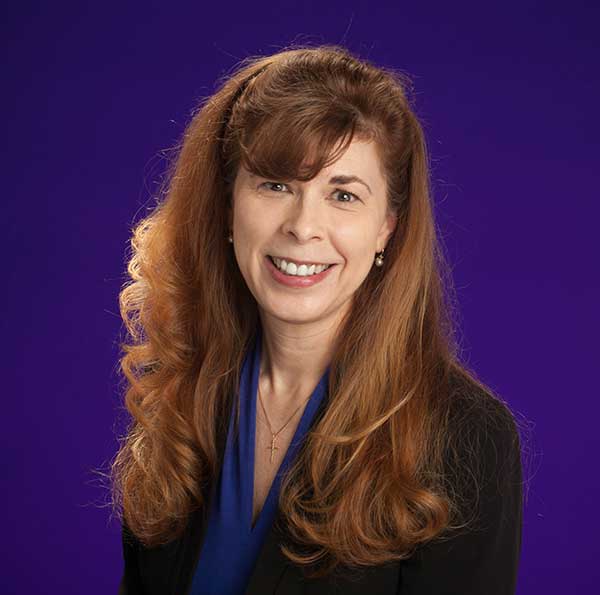
Sonja Westbrook, 57, Dunwoody, Ga.
Leads IT teams and teaches.
Doctoral research paper: Strengths and weaknesses of remote work: A review of the literature
"A doctorate is the pinnacle of my educational pursuits and a goal for many years. I was working on the MSIT at MGA and asked the professors to recommend some programs as I have looked for years but never found the right one. They told me to hold tight."

Elizabeth Williams, 33, Brooklet, Ga.
Technical account manager at Tanium. Married to another member of the charter class, Tom Williams III.
Doctoral research paper: Actualizing gender and racial diversity inclusion in computing fields
"Eight months into my doctoral journey, my husband and I welcomed our first child, Theodore Charles Williams. Born two months early and spending his first few weeks in a Level 3 NICU following brain surgery, the continuation of our educational pursuits came with its challenges. Combining the doctoral program with being first-time parents and full-time employees alongside monitoring Theodore's medical outcomes was challenging. While my career and educational aspirations are a good enough reason on their own, experiencing life through Theodore has allowed me to see that I have a much bigger example to set. From a non-traditional educational pathway and becoming the first person in my family to graduate college – and definitely the first to achieve a doctorate degree - I will teach my son that any dream he believes in can be realized."
Tom Williams III, 33, Brooklet, Ga.
Senior manager at Tanium, adjunct IT instructor at MGA. Married to another member of the charter class, Elizabeth Williams.
Doctoral research paper: Risk trends by industry: an empirical study in ransomware target trends
"I've always considered traditional education and continued learning to be integral to growing my character. One thing I often tell people is that I technically never left school. For nearly two decades I've worked in the field full-time while taking classes each semester. I pursued the Doctor of Science in IT to complement my personal character."”"
Other candidates for graduation as members of the DSIT charter class are
- Michael Barker
Doctoral research paper: Alternative credential training in cybersecurity: An exploratory study of the Nexus Certificate and Degree in Cybersecurity - Jeremy Bro
Doctoral research paper: Impact of scenario-based training on secure code education programs - Chris Tsavatewa
Doctoral research paper: Perceptions of data governance: Identifying critical success factors in a university system’s implementation effort



